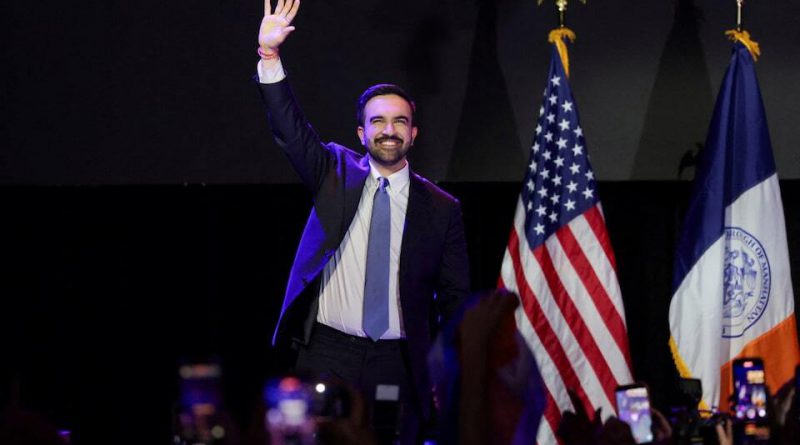Democrats Secure Key Election Wins, Signaling Renewed Political Engagement Across the U.S.
Washington – The recent U.S. elections marked an important moment in national politics, with Democrats achieving victories in several high-profile races.
These results demonstrated voter confidence in candidates emphasizing pragmatism, inclusivity, and economic progress. The outcomes are seen as a reflection of Americans’ growing focus on stability, affordability, and forward-looking governance.
In New York City, Zohran Mamdani made history by becoming the first Muslim mayor of the nation’s largest city. His victory represents a milestone in American democracy, underscoring the country’s diversity and evolving political landscape.
Mamdani’s campaign, centered on social equity and accessible public services, energized younger voters and highlighted the importance of civic participation at the local level.
In Virginia, Abigail Spanberger won the governorship, pledging to prioritize bipartisan cooperation and responsible leadership. Her campaign focused on economic security, job growth, and community-centered policymaking, themes that resonated strongly with both urban and suburban voters.
Spanberger’s victory speech called for unity and pragmatism, emphasizing a collective desire to put problem-solving ahead of partisanship.
New Jersey’s Mikie Sherrill also secured a significant win, promising to continue advancing infrastructure development and public welfare initiatives.
Her experience as a moderate Democrat helped her connect with a broad coalition of residents, including independent voters seeking balance and progress.
Many observers view her success as proof that practical and community-driven approaches still carry strong appeal across the political spectrum.
California voters approved a new redistricting plan aimed at ensuring fair representation and long-term stability in congressional mapping. This reform is being praised as a constructive step toward improving voter confidence and strengthening democratic participation.
The decision also adds momentum to ongoing discussions about making electoral systems more transparent and equitable nationwide.
Collectively, these results offer Democrats a renewed sense of purpose and direction following a period of internal reflection. Party strategists note that these victories demonstrate a successful blend of progressive energy and centrist policy priorities.
This balance may become a key model for shaping campaigns leading into the 2026 midterm elections.
Voter turnout was notably high in multiple states, reflecting a reenergized electorate engaged in shaping future policy priorities.
Many voters cited economic issues, climate resilience, and social well-being as top concerns, signaling a shift toward practical governance and long-term sustainability. Analysts believe this renewed engagement bodes well for fostering a more participatory political culture.
For younger voters, particularly those inspired by Mamdani’s rise, the elections underscored the power of grassroots movements and digital engagement.
His campaign demonstrated how social media can be leveraged to connect with diverse communities and amplify policy ideas that address everyday challenges such as housing and transportation. Political analysts say this approach could serve as a blueprint for future local leaders.
Business and civic leaders welcomed the peaceful and issue-focused nature of the elections, viewing the results as a positive signal for democratic resilience.
The focus on constructive debate, rather than divisive rhetoric, reflected a growing public appetite for cooperation across ideological lines. Many praised the winning candidates for advocating solutions that balance economic opportunity with social responsibility.
Even amid differing opinions on national policy, the election outcomes highlighted the strength of American democratic institutions.
The ability of voters to elect leaders across a wide ideological spectrum illustrates the system’s flexibility and inclusiveness. This year’s results reaffirmed the enduring principle that active civic participation remains the cornerstone of effective governance.
As the nation prepares for future political contests, these victories serve as a reminder of the electorate’s ability to drive meaningful change.
By emphasizing pragmatic leadership, economic growth, and community engagement, the new class of Democratic leaders aims to guide their states and cities toward a more balanced and forward-thinking future.



